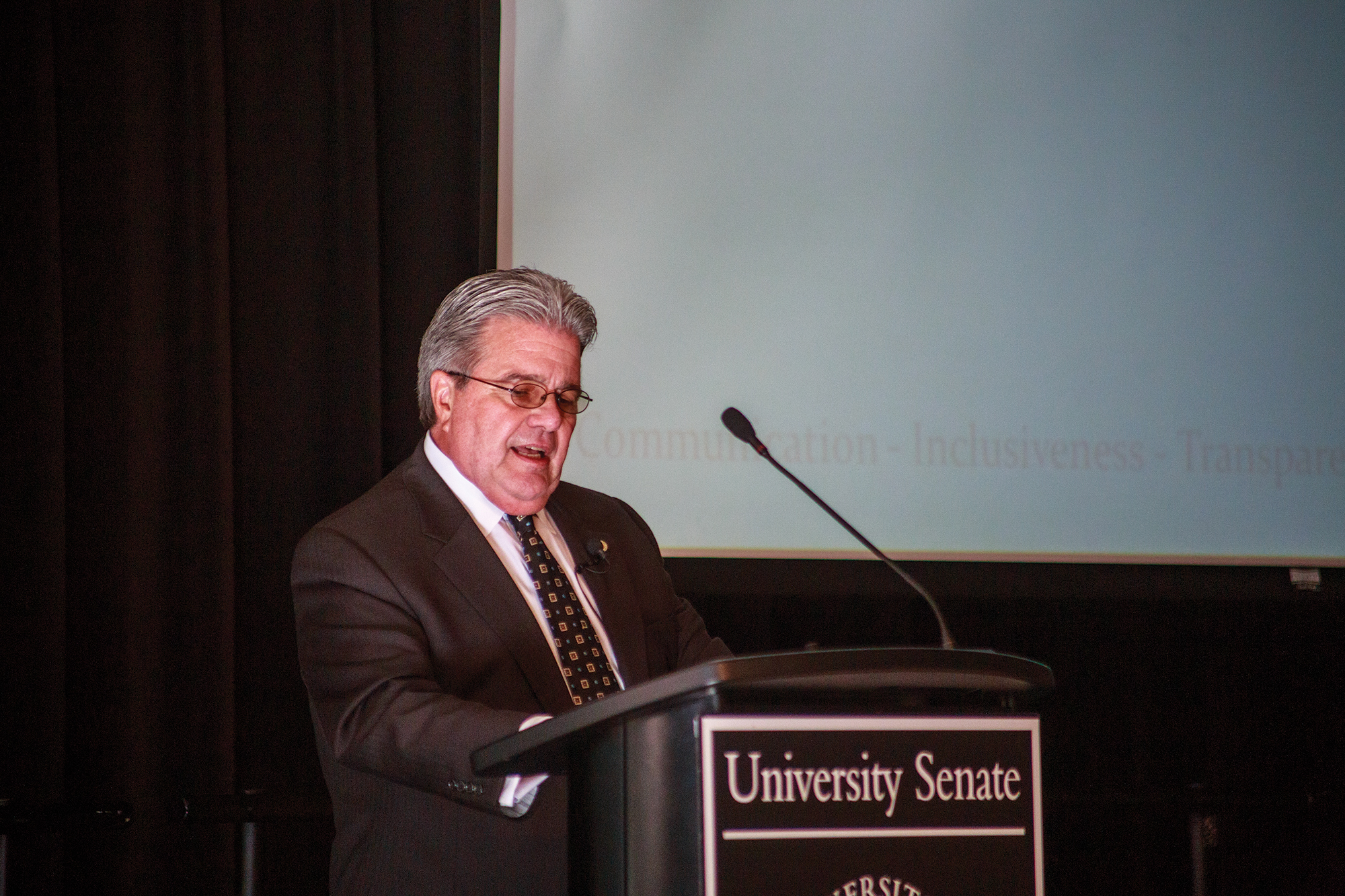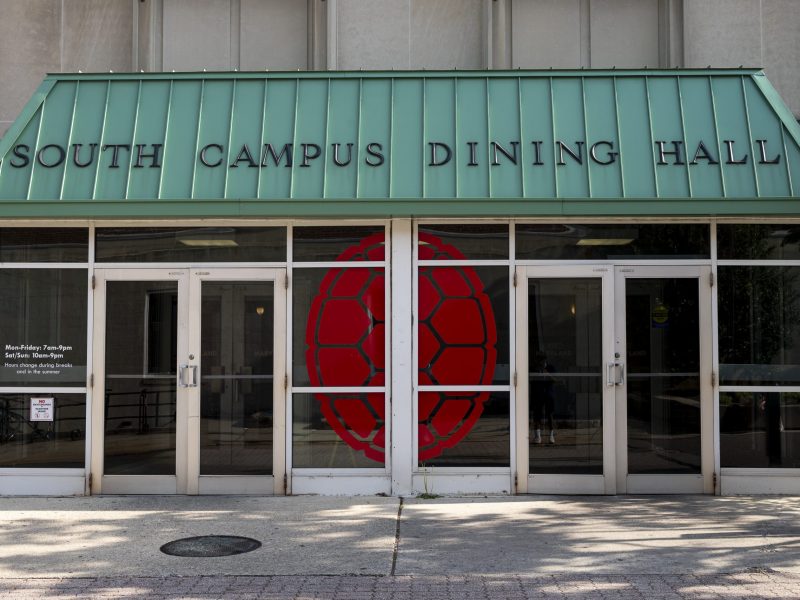University System of Maryland Chancellor Robert Caret sat down with The Washington Post this week to discuss his tenure in office thus far, funding for the state of Maryland’s colleges and universities and the recent controversy over his $75,000 bonus this summer.
Caret has served as chancellor of the university system — which includes 12 institutions and about 163,000 students — since 2015. Here are some highlights of what he had to say in his interview with The Post:
An in-state university system education costs “half the price of a Ford Focus”
Caret took over as the university system’s chancellor on July 1, 2015, when William “Brit” Kirwan retired after 12 years in the position.
The Post reported that when Caret began his tenure, he faced a “$1.2 billion budget shortfall” that forced the university system to “make $25 million in cuts and raise tuition by 2 percent.”
But Caret told The Post that Maryland is still a “very affordable state” in terms of higher education. Maryland is one of the best states “in terms of the percentage of higher education funding that comes from the state,” and in-state students can attend most campuses for $24,000 to $26,000 including room and board, Caret said.
“So the real cost is in the order of about $13,000,” he said. “That’s tuition, fees and books. Then 70 percent of our students get aid, so the net price on average is something around $8,000 to $9,000. It’s half the price of a Ford Focus.”
He knows people are angry about tuition increases nationwide
Despite the state’s affordability, Caret told The Post that family income issues, room and board and other costs associated with attending college make it difficult for many students to graduate debt-free. The system also aims to help students by providing merit- and need-based scholarships, he added.
In the future, Caret stressed the importance of keeping state funding high to prevent further tuition increases.
“Higher education gets jammed because … [the state is] not forced by law to fund us,” Caret said. “And they say, ‘Hey, by the way you can raise tuition.’ Then we raise tuition and they get mad at us. I think it is going to be politically, if not impossible, highly undesirable to look at a future in which we’re raising tuition and fees any more than inflation. The states are angry. The population is angry.”
He’s not sorry about his controversial bonus
The Board of Regents received backlash after it awarded Caret a $75,000 bonus and a $30,000 raise in a closed meeting in June, The Diamondback previously reported.
The board responded by eliminating bonus pay for future chancellors and agreeing to renegotiate compensation packages that include bonus pay.
In a state General Assembly subcommittee hearing in August, board chairman James Brady defended the chancellor’s bonus, saying Caret deserved it, but acknowledged that “in retrospect, the rationale supporting the bonus component could have been better articulated and explained by the board when the contract was made public.”
Caret didn’t apologize for the bonus in his interview with The Post. After running two campuses and two systems for the last 25 years, he attributed his compensation to his experience and economic market.
“They matched my Massachusetts salary; I didn’t ask for a penny more,” Caret said. “I had just signed a new five-year contract in Massachusetts. I wasn’t about to walk away from it for less money. I’m not a missionary; I’m an educator. Based on my track record, I believe I deserve and earn what they pay me.”
Caret said there is a “political problem” with higher education salaries, because administrators at this level are paid “well beyond” what the average person earns.
“It’s always a problem because people don’t understand,” he said. “They say, ‘Why are we paying the football coach this, why are we paying the president that?’ It’s because you want them.”



